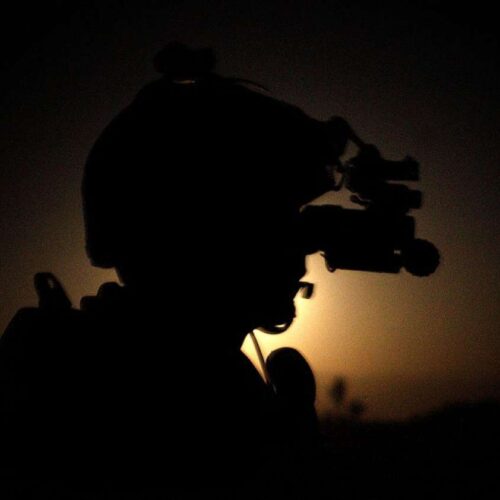Introduction
When U.S. special operations forces killed Osama bin Laden in a Pakistani hideout in May, they relied on night-vision goggles, devices that the Pentagon describes as valuable and sensitive national resources.
Such goggles give U.S. forces a built-in advantage that other nations — including those in the Middle East — lack the ability to replicate. As a result, when the U.S. sells such equipment to friendly allies in the region, it generally requires strict precautions against theft or diversion, including a requirement that they be stored in protected depots with their serial numbers recorded and frequently checked.
But these precautions ordered in Washington are frequently ignored or poorly enforced by Defense and State Department officials in the field, and as a result, some of the night-vision goggles sent to the region have gone missing, according to a report by the General Accountability Office last month.
The report was part of a congressionally ordered probe into billions of dollars-worth of U.S. arms sales and transfers to the Middle East over the past five years. The GAO said the failure to keep track of the goggles is part of a larger set of troubles in the mandated monitoring effort.
In some cases, the departments have given short shrift to human rights concerns involving the potential misuse of such arms by autocratic countries — such as Bahrain and Yemen — that have been caught up in the Arab Spring rebellions.
“Given recent unrest … this could result in U.S.-funded equipment being misused to quell peaceful demonstrators,” the GAO warned.
An October report by Amnesty International said U.S.-made tear gas canisters, rubber bullets, and sound grenades were found in the debris of a police raid on a peaceful protest in Bahrain last February that injured hundreds. A handful of the citizens who died were killed by tear gas, an independent government panel concluded on Nov. 23.
The GAO attributed the shortcomings in part to to differing State and Defense Department policies. At the Pentagon, which authorized $22 billion in arms sales to six friendly members of the Gulf Cooperation Council, officials have not demanded “documentation that the…countries have fulfilled the security and accountability requirements that accompany their purchase of sensitive defense articles,” the GAO said.
Checklists used for monitoring sensitive equipment like night-vision goggles, air-to-air missiles, and anti-tank missiles, are used “only as a loose guide for verifying compliance,” defense officials told the GAO.
“Most said they did not fill out checklists … or maintain documentation of these checklists after completion because DOD has not formally required them to do so,” the report reads.
The State Department, which is supposed to check the destination and track the use of military equipment sold in commercial transactions, followed different procedures with similarly flawed results.
It waited three years, for example, to request a check on the location and safeguards surrounding night-vision goggles send to Qatar in 2008. When embassy officials tried to conduct the check, they discovered that the commercial end-user had relocated and they could not account for the items, the GAO reported.
A similar delay in checking on 766 night-vision goggles sent to Saudi Arabia and distributed to forces around the kingdom caused the embassy to rely on indirect confirmations of the location of 638 sets. No confirmations were received about the remaining 128, the report stated.
In around a dozen other export cases, involving the United Arab Emirates, Oman, and others, diplomatic officials declared they had tracked shipments adequately, by obtaining confirmations from intermediate firms; they did not check to see if “the items had been received by the end-user,” according to the GAO.
The State Department said its embassy did not request a visit in the UAE “because we believed that written assurances from a host government with an established record … is sufficient.”
The GAO responded, however, that State Department documents it saw specifically demanded on-site, serial number verifications. It also said a copy of the UAE assurance — which arrived 14 months after it was requested — only stated “that the items had been fully received” without specifying that they were being appropriately used. The UAE also failed, as of the study’s completion in August, to give Washington a copy of its plan to safeguard the night-vision devices, despite repeated U.S. requests.
This failure “erodes confidence in the security of arms sold to a country that has been used by illicit actors to transship sensitive equipment,” the GAO report said without elaboration.
A flaw in the database the Defense Department uses to document the equipment it has sold makes it impossible to know whether its inventories were completed on time, or at all, prior to July of this year, the GAO said. In total, 2,521 of 10,549 night vision goggles had not been inventoried, and 50 of the devices included in that report had been lost altogether. An additional 115 goggles purchased by Kuwait were missing in 2007.
Of the 34 licenses granted by the State Department for such exports from 2005 to 2010, “State conducted end-use checks” on nine, or about a quarter, despite the fact that they all included security and accountability monitoring requirements.
Moreover, since some of these State Department checks were supposed to encompass exports of the most sophisticated type of goggles, which use a thermal imaging system, Washington has no documentation of what happened to devices considered “more prone to diversion,” according to the GAO’s account.
The State Department, in a written comment on the report, promised to “better harmonize” its work with the Pentagon and to increase its monitoring of night-vision goggles. But it complained that, in contrast to the Pentagon, “neither we nor embassies around the world have the human resources to complete a 100% check on all” such exports.
The Pentagon, in its own written comments, expressed concern that the GAO’s language “overstates possible flaws” but welcomed the idea of harmonizing regulations and promised to prepare better written guidance for its personnel in the region. It also said the Obama administration had set a deadline of the end of this year for receiving the UAE plan for safeguarding goggles already in its possession, and promised that future exports would be affected if the deadline was not met.
Independent groups remain concerned, however, that State Department officials are tone-deaf about the risks of selling such equipment to autocratic countries that might use them to repress their own populations.
After the crackdown in Bahrain, for example, the French government announced a suspension of its exports of toxic agents, small arms, and ammunition. Over the next few days, Britain, Spain, and Belgium stopped their own exports.
But the Obama administration, in September, proposed to sell $53 million worth of missiles and armored vehicles to the country, which received $80.4 million in military financing from the U.S. between 2005 and 2010 and is home to a 60-acre U.S. naval base.
“The proposed sale will improve Bahrain’s capability to meet current and future armored threats,” according to a Defense Department announcement. “Bahrain will use the enhanced capability as a deterrent to regional threats and to strengthen its homeland defense.”
State Department spokesman Mark Toner said in October that any sale of weapons used for “external defense purposes” would have “end-use monitoring, where we make sure … that these items are being used for what they were intended to be used for.”
The State Department said initially that it would hold up the sale until an independent commission had reported on the government’s handling of the demonstration, and more recently that it would not ship any weapons until Bahrain has been given time to implement reforms.
The GAO said, however, that the State Department’s policies for vetting human rights issues in arms export decisions are flawed.
It said that while the government carefully checked the records of units and individuals for past abuses while considering whether to support training, it typically did not apply the same scrutiny to individuals and units slated to receive advanced U.S. weaponry.
This “increases the risk that [U.S.-funded] equipment may ultimately be used by violators of human rights,” the report said.
The administration responded that it agreed with this finding, and promised to improve its “human rights vetting procedures” to include scrutiny of individual units. But it also said, in its written comments, that “the term ‘uprising’ is misleading and does not reflect the reality of the GCC countries.”
Read more in National Security
National Security
Problems with battlefield smartphones
Soldiers worry about distraction
National Security
Pentagon is the security aid king in Washington
The latest defense bill gives the Pentagon more than double what the State Department spends on security assistance



Join the conversation
Show Comments